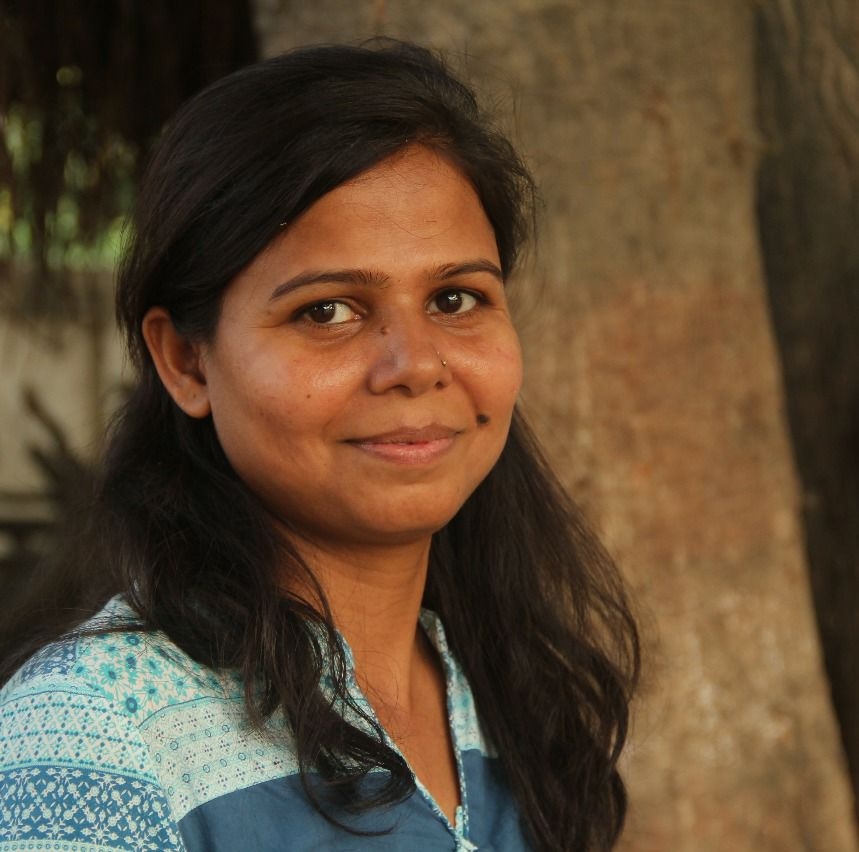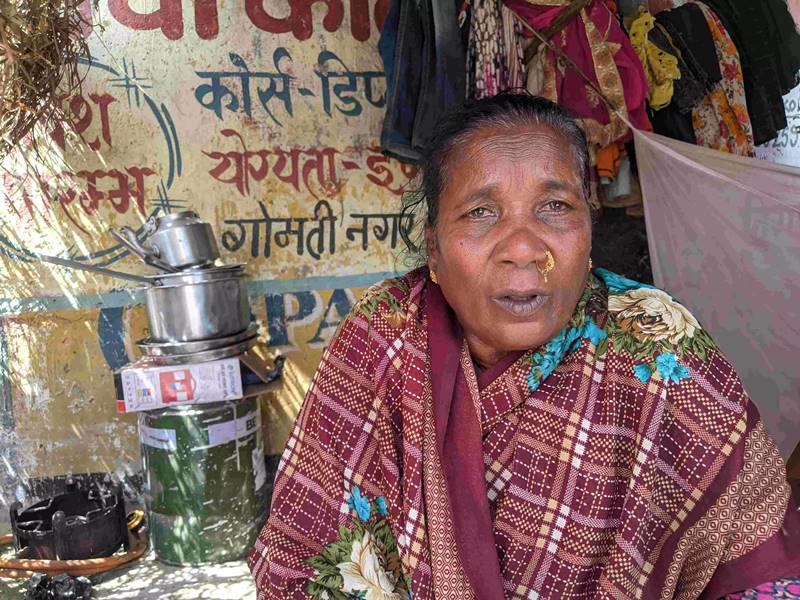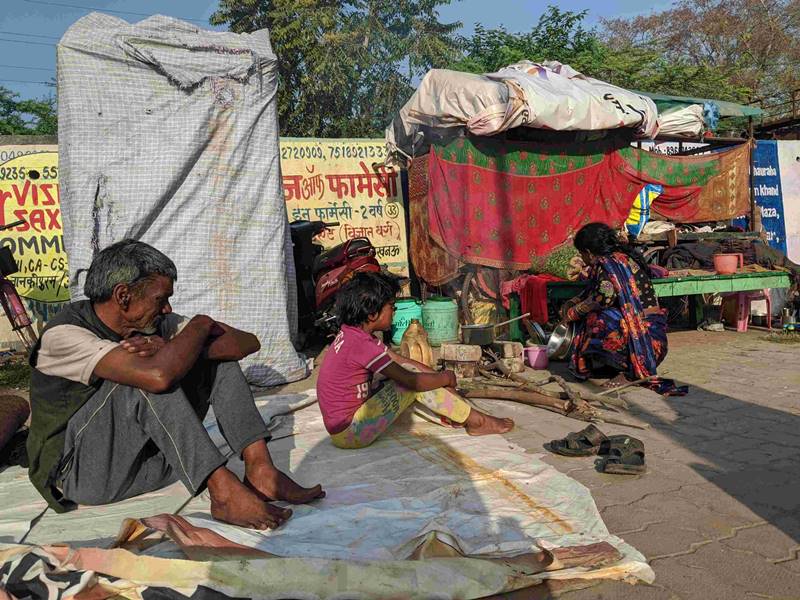All Janaki Devi is left with is gnawing hunger and memories of her husband
Gaon Connection met with a family it first spoke to in March 2020, the day after lockdown. The family’s life has turned topsy turvy in one year. It lost its head of the family and has learnt to call a small patch of footpath in Lucknow home.

Lucknow, Uttar Pradesh
Janaki Devi, who lives by the sidewalk near gate number two of Janeshwar Mishra park, the largest park in Asia, wailed upon seeing a video footage shot a year ago. Wiping her tears with the pallu of her grimy, tattered sari, she told Gaon Connection: “For a second, hearing his voice and seeing him, I felt my husband is alive again. I don’t even have a photograph to remember him by.”
On March 25 last year, day one of the nationwide COVID19-induced lockdown, Gaon Connection had shot a video of Janaki Devi’s 65-year-old husband Ramsurat. He had worried about how he would run his large family for 21 days (the initial lockdown was for 21 days) when non-essential services were closed.
The family managed to survive the lockdown despite abject poverty, but Ramsurat died in April last year, weeks after lockdown was imposed. His six sons and their families — 23 people in total — still struggles to eke out a living.
Sixty one-year-old Janaki, sitting inside her shack with her daughter-in-law and granddaughter, said she was now dependent on her sons’ income. “These days, the weather is okay, but during Jeth-Baisakh (May-June) the sun blazes, and our shack heats up like a furnace, forcing us to seek shelter beneath some tree,” she said.

Janaki lives on the sidewalk by the road between Janeshwar Mishra park and the railway line. Some more families have pitched temporary tents opposite the park — the tarpaulin is put up only during the night. During the day, members of her family ply e-rickshaws or work for wages. A female member runs a tea-stall.
Many of their shacks were demolished by authorities, Janaki alleged. “Now, we all huddle up to sleep in one shack.”
Lockdown woes
On March 24 last year, at around 8 pm, Prime Minister Narendra Modi announced a 21-day lockdown across the country, beginning midnight, to prevent the spread of COVID19.
The lockdown unleashed a sea of trouble for families who derived sustenance from daily wage work and were ill prepared for the sudden imposition of restrictions. They had neither safe accommodation nor ration to see them through 21 days of lockdown.
Piling their meagre possessions upon the e-rickshaw operated by Ramsurat’s son on lease, the family headed over to its village in Bankatwa area of Bahraich district, about 200 kilometres from Lucknow. Bahraich is one of the most backward districts of India.

Back in the village, Ramsurat took ill. “We had no money to get him treated, and he passed away after some days,” Janaki said. And so, the family, originally from Bankatwa village in Bahraich but which moved to Lucknow for a livelihood, found itself rudderless.
The family lives on daily wages, and has never made enough money to rent a house. Thirty two-year-old Pappu Verma, the second of Janaki’s six sons, said he was unable to earn much from the rickshaw. “I run a rented e-rickshaw, and hardly manage hundred rupees over rental every day. Earlier, our cumulative income was enough to feed everyone. Now, I have a debt of fifty thousand rupees. When it’s difficult to find food, how can I pay the debt?” he rued.
A large part of this loan has gone towards repaying previous debt incurred during the lockdown. After the lockdown, the government had provided financial assistance to those who worked for a daily wage. The women got Rs 500, and ration was distributed free of cost in the village for several months.
According to the family, this was very helpful, but after two to three months, they began facing issues related to ration, and had to borrow even to eat. Sitting by her tea stall, Pappu’s wife, 31-year-old Gyanvati, said she used to make Rs 400 or Rs 500 a day, but now hardly manages to make Rs 150 a day.
“Ours is a big family and it takes a lot of money to feed everyone. We have not been issued ration cards anywhere, not even in our village. There is no government aid coming into our accounts. Some people gave us rations and that helped us survive,” Gyanvati told Gaon Connection.
Janaki’s fifth daughter-in-law Seema Devi sat in a corner with her six-month-old child on her lap. Showing a carry bag with some rice in it, she said: “There might be a kilo of rice in it. We share this among all. How is it enough?”
The COVID-19 lockdown in India only exacerbated the hardships of this particular family, like it did for thousands of others. While the government did provide relief to a large number of people, many still slipped between the cracks.
When it was time to leave, Janaki had a request. “Can you please give me a photo of my husband? That is my only support now.”
Also Read: Post lockdown, this family is staring at hunger and illness. And, they are not alone

